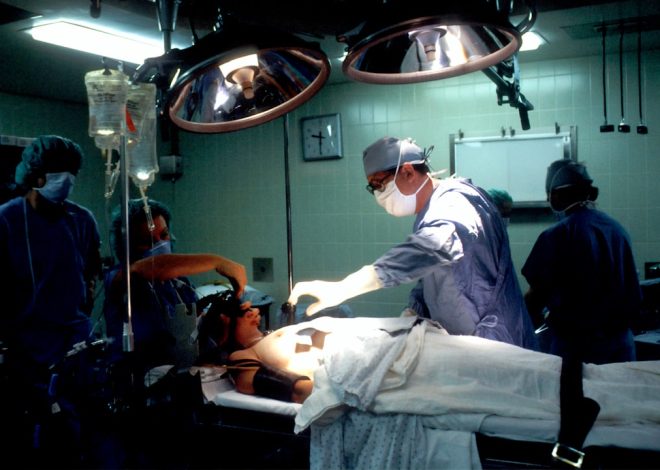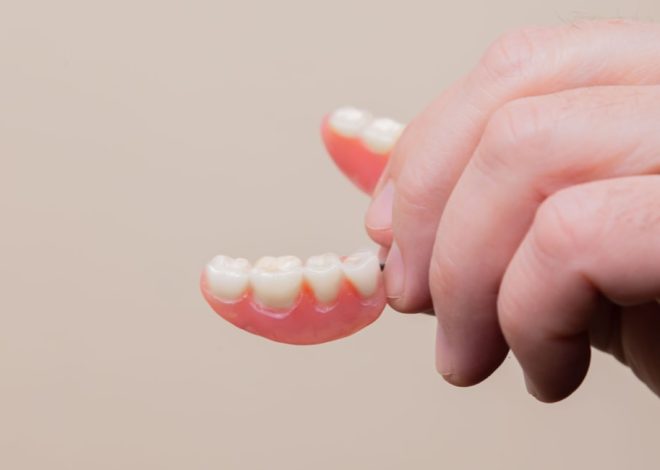
Unlocking the Expertise of Dental Specialists
Dental specialists are highly trained professionals who focus on specific areas of oral health care. They undergo extensive education and training beyond that of general dentists to become experts in their chosen specialties. These specialists include orthodontists, periodontists, endodontists, oral surgeons, and others, each addressing different aspects of dental health.
The role of dental specialists is crucial in providing advanced and specialized care for complex dental issues. They possess in-depth knowledge and skills to diagnose and treat conditions that may be beyond the scope of general dentistry. This expertise allows them to offer specialized treatments and solutions, enhancing the overall quality of dental care available to patients.
Collaboration between dental specialists and general dentists is common and beneficial. This integrated approach allows for comprehensive care tailored to each patient’s specific needs. Specialists often work with general dentists to develop personalized treatment plans, combining their specialized knowledge with the general dentist’s overall understanding of the patient’s oral health.
This collaborative model of care not only improves the quality of dental treatments but also leads to better outcomes for patients. By addressing complex dental issues with specialized expertise, dental specialists contribute significantly to improving oral health and, by extension, overall patient well-being.
Key Takeaways
- Dental specialists play a crucial role in providing specialized care for complex dental issues.
- Dental specialists undergo extensive training and education beyond general dentistry to become experts in their specific field.
- Collaborating with dental specialists can ensure comprehensive and personalized care for patients.
- Dental specialists have access to advanced treatments and technologies to provide the best possible care for their patients.
- Dental specialists are valuable members of multidisciplinary healthcare teams, contributing their expertise to overall patient care.
Understanding the Training and Education of Dental Specialists
The Path to Specialization
After completing dental school and obtaining a Doctor of Dental Surgery (DDS) or Doctor of Dental Medicine (DMD) degree, aspiring specialists must undergo additional postgraduate training in their chosen specialty. This typically involves completing a residency program, which can range from two to six years, depending on the specialty.
Advanced Education and Training
During this time, dental specialists receive advanced clinical and didactic education in their area of expertise, gaining hands-on experience and specialized skills that are essential for providing specialized care. In addition to their residency training, dental specialists may also pursue board certification in their specialty, which involves passing rigorous examinations to demonstrate their knowledge and proficiency in their field.
Expertise and Commitment to Patient Care
This certification further validates their expertise and commitment to maintaining the highest standards of patient care. Overall, the extensive education and training required to become a dental specialist ensure that these professionals are well-equipped to provide advanced, specialized care for a wide range of oral health issues.
Collaborating with Dental Specialists for Comprehensive Care
Collaboration between general dentists and dental specialists is essential for providing comprehensive care that addresses the diverse needs of patients. General dentists often serve as the primary point of contact for patients, providing routine preventive care, diagnosing common dental issues, and coordinating referrals to specialists when necessary. By working together, general dentists and specialists can ensure that patients receive seamless, integrated care that addresses both their general and specialized oral health needs.
When collaborating with dental specialists, general dentists can leverage their expertise to develop comprehensive treatment plans that take into account the unique needs and preferences of each patient. This collaborative approach allows for a more holistic and personalized approach to dental care, ultimately leading to better outcomes and improved patient satisfaction. By working as a team, general dentists and specialists can combine their knowledge and skills to provide the most effective and appropriate treatments for each patient, ultimately promoting better oral health and overall well-being.
Accessing Advanced Treatments and Technologies through Dental Specialists
| Treatment | Specialist | Technology |
|---|---|---|
| Orthodontic treatment | Orthodontist | Invisalign, braces |
| Root canal therapy | Endodontist | Apex locator, rotary instruments |
| Oral surgery | Oral surgeon | 3D imaging, laser technology |
| Periodontal treatment | Periodontist | Laser therapy, tissue regeneration |
Dental specialists are at the forefront of advanced treatments and technologies in their respective fields, offering patients access to cutting-edge solutions for complex oral health issues. Whether it’s orthodontic treatment with clear aligners, minimally invasive periodontal therapy, or state-of-the-art endodontic procedures, specialists are constantly innovating and adopting new techniques to improve patient outcomes and experiences. By seeking care from dental specialists, patients can benefit from the latest advancements in their specialty, receiving treatments that are more precise, efficient, and comfortable than ever before.
Furthermore, dental specialists often invest in advanced technologies and equipment to enhance their diagnostic capabilities and treatment outcomes. From digital imaging and 3D scanning technology to laser therapy and minimally invasive surgical techniques, these tools enable specialists to deliver high-quality care with greater precision and predictability. By leveraging these advanced treatments and technologies, dental specialists can offer patients a higher standard of care that is tailored to their specific needs, ultimately leading to better outcomes and improved patient satisfaction.
The Role of Dental Specialists in Multidisciplinary Healthcare Teams
Dental specialists play a vital role in multidisciplinary healthcare teams, collaborating with other medical professionals to address complex oral health issues that may impact overall health and well-being. For example, periodontists may work closely with physicians to manage the oral health implications of systemic conditions such as diabetes or cardiovascular disease, while oral surgeons may collaborate with maxillofacial surgeons and oncologists to provide comprehensive care for patients with oral cancer or facial trauma. By working as part of a multidisciplinary team, dental specialists can contribute their expertise to improve patient outcomes and promote holistic approaches to healthcare.
In addition to collaborating with other medical professionals, dental specialists also play a key role in interdisciplinary collaborations within the field of dentistry itself. For example, orthodontists may work closely with prosthodontists and general dentists to coordinate comprehensive treatment plans for patients requiring both orthodontic and restorative dental care. By leveraging the expertise of multiple specialists, these collaborative efforts can result in more effective treatment outcomes and improved patient experiences.
Overall, the involvement of dental specialists in multidisciplinary healthcare teams underscores the importance of integrated care in addressing complex oral health issues.
Overcoming Common Misconceptions about Dental Specialists

Recognizing the Unique Contributions of Dental Specialists
One common misconception is that general dentists can provide the same level of care as specialists in certain areas of dentistry. While general dentists are highly skilled in providing routine preventive care and addressing common dental issues, they may not have the same level of expertise or training as specialists in more complex or specialized treatments.
Debunking the Myth of Unnecessary or Expensive Care
Another misconception is that seeking care from a specialist may be unnecessary or overly expensive. In reality, consulting with a specialist can often lead to more efficient and effective treatment outcomes, ultimately saving patients time and money in the long run.
Accessibility and Affordability of Specialized Care
Many dental specialists work with insurance providers to ensure that their services are accessible and affordable for patients who require specialized care. By addressing these misconceptions and promoting a better understanding of the value that dental specialists bring to the field of dentistry, patients can make more informed decisions about their oral health care needs.
How to Find and Choose the Right Dental Specialist for Your Needs
When seeking care from a dental specialist, it’s important to consider several factors to ensure that you find the right professional for your specific needs. Start by asking your general dentist for recommendations or referrals to reputable specialists in your area. Your dentist can provide valuable insights into which specialist may be best suited to address your particular oral health concerns based on their expertise and track record of success.
Additionally, consider researching potential specialists online to learn more about their credentials, experience, and areas of expertise. Look for reviews from previous patients to gain insight into the quality of care provided by each specialist. It’s also important to verify that the specialist is board-certified in their respective specialty, as this demonstrates their commitment to maintaining the highest standards of patient care.
When meeting with a potential specialist for an initial consultation, be sure to ask questions about their approach to treatment, the technologies they use, and any potential alternatives or options available for your specific needs. This will help you gain a better understanding of the specialist’s expertise and how they can address your unique oral health concerns. Ultimately, choosing the right dental specialist involves finding a professional who not only has the necessary expertise but also makes you feel comfortable and confident in their ability to provide the best possible care for your oral health needs.
By taking these factors into consideration, you can make an informed decision when selecting a dental specialist who can address your specific concerns and help you achieve optimal oral health outcomes.
If you’re interested in learning more about the latest advancements in dentistry, you should check out this article on revolutionizing dentistry with 4G dental lab. This article discusses how cutting-edge technology is changing the way dental specialists approach their work, leading to better outcomes for patients.
FAQs
What are dental specialists?
Dental specialists are dentists who have completed additional training and education in a specific area of dentistry. They have expertise in their chosen specialty and provide advanced care for patients with specific dental needs.
What are the different types of dental specialists?
There are several types of dental specialists, including orthodontists (who specialize in straightening teeth), periodontists (who specialize in treating gum disease), endodontists (who specialize in root canal therapy), oral and maxillofacial surgeons (who specialize in surgical procedures in the mouth and jaw), and pediatric dentists (who specialize in dental care for children).
How are dental specialists different from general dentists?
While general dentists provide a wide range of dental services, dental specialists have focused their training and expertise in a specific area of dentistry. They often handle more complex cases and provide specialized treatments that general dentists may not offer.
When should I see a dental specialist?
You may be referred to a dental specialist by your general dentist if you have specific dental issues that require specialized care. This could include orthodontic treatment, gum disease, root canal therapy, oral surgery, or pediatric dental care.
How do I find a dental specialist?
You can find a dental specialist by asking for a referral from your general dentist, searching online for specialists in your area, or contacting your dental insurance provider for a list of in-network specialists. It’s important to choose a specialist who is board-certified and has the necessary credentials and experience in their field.


